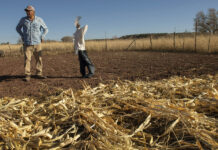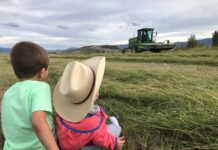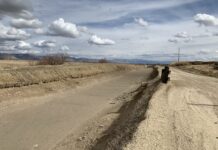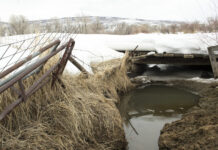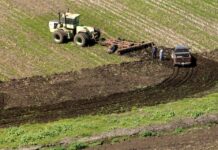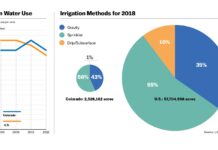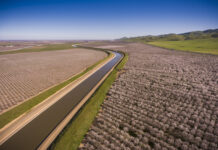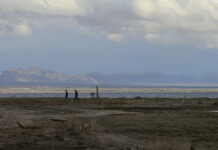Praying for rain
The Zuni tribe's homeland is one of the most parched sections of the country. The tribe has already declared three drought emergencies in the last 15 years. Will it survive the next one?
How a high-elevation irrigation study in Kremmling could help Colorado avoid future water shortages
A group of ranchers is helping scientists learn more about what happens to pastures that receive less irrigation water.
State demand-management investigation moves ahead
Water managers and experts from across Colorado are investigating the feasibility of a voluntary, temporary and compensated water-use-reduction program.
Colorado bill to expand loan of water to the environment has wide support
House Bill 1157 would allow water-rights holders to temporarily loan their water to the Colorado Water Conservation Board’s instream-flow program with the goal of improving the natural environment.
Colorado River drought study advances as participants call for fairness between cities, ranches
Can Colorado find a fair way to set aside as much as 500,000 acre-feet of water in Lake Powell to protect the state from future drought?
New law strengthens historical agricultural water uses
A new bill seeks to resolve the debate over how ranchers and other water users can maintain their historical water use when dry conditions trigger cutbacks.
Can carbon credits save Sacramento-San Joaquin Delta islands and protect California’s vital water hub?
An ambitious plan would use carbon credits as incentives to convert Delta islands to wetlands or rice to halt subsidence and potentially raise island elevations.
Report: Colorado’s farm water use exceeds national average, despite efforts to conserve
Farm water is critical to Colorado’s effort to balance a growing population with a water system stressed by drought and climate change.
California’s dream has turned into water nightmares
A new book looks at the Golden State’s history to understand its current water crisis.
As the Salton Sea shrinks, it leaves behind a toxic reminder of the cost...
Scientists fear that eventually the toxic residue of more than a century of agricultural runoff will be blown into the air — and into the lungs of residents.



